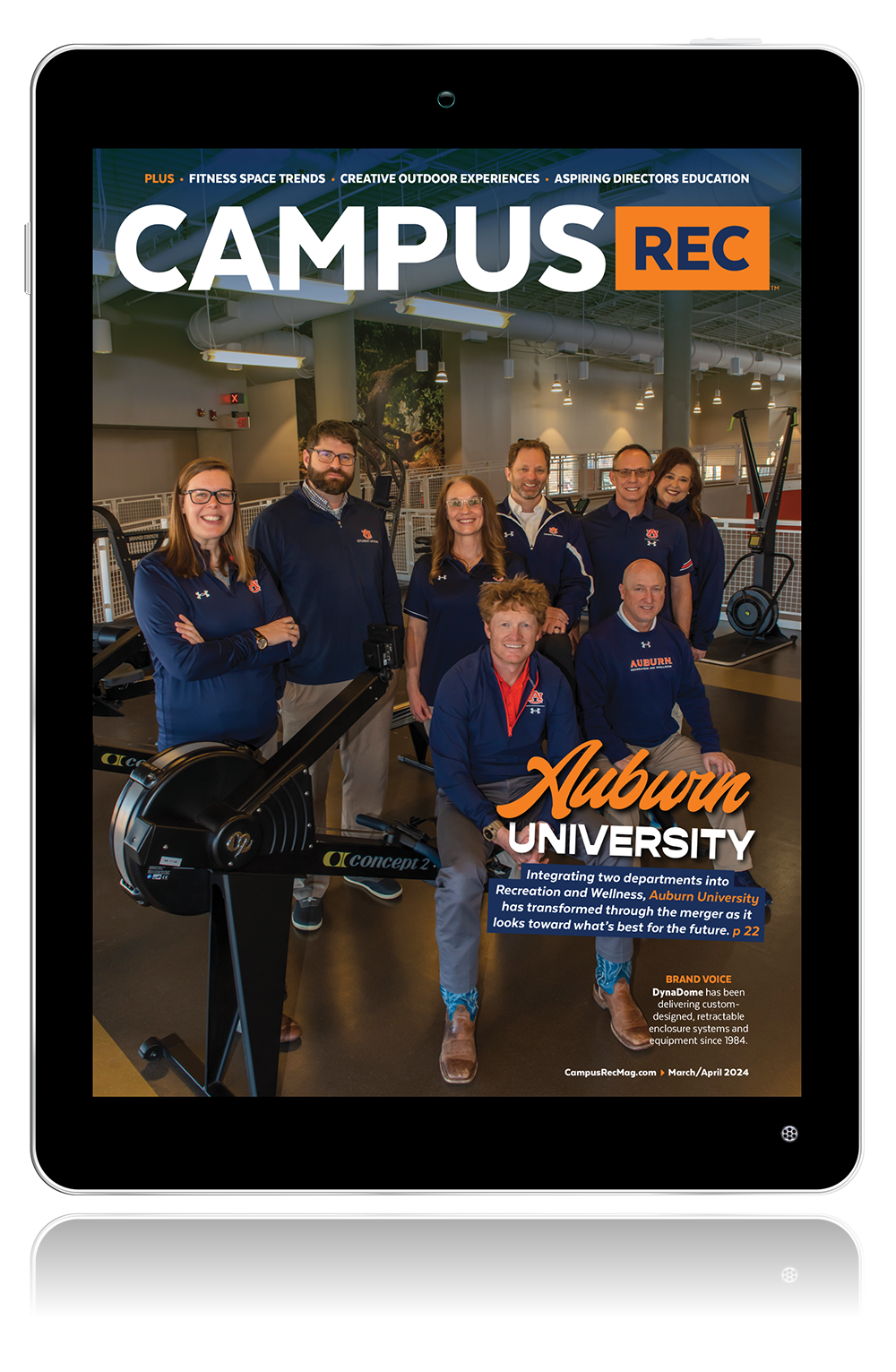In our current culture, I am sure I don’t need to bring to your attention the efforts being made in our industry for inclusivity. A call to be aware of and change our language, to be more inclusive, welcoming and supportive of all people.
In my experience this has been an incredibly positive change, especially on the college campuses. When you are at the front of the studio with a mic or in the weight room with a personal training shirt on people will listen to you and they believe what you say is true. There is power in your words. You may have heard people say, “If you throw a brick through a window it will break.”
A brick can be used as a weapon and cause a lot of damage, but a brick can also be used to build a bridge or a building that can be strong and last for hundreds of years. The same is for your words. With great power comes great responsibility.
One thing we are still hanging onto as fitness professionals are words and phrases that are on the surface innocent but can be harmful to some. More importantly, they can support a negative view of exercise and physical activity.
Exercise is Not Punishment
For example, I am teaching a group fitness class around Halloween and say, “Let’s burn off those bite-sized candies.”
On the surface this seems harmless. At a deeper level however, this statement says that if I am going to enjoy candy, I must exercise as punishment to make up for eating unhealthy food.
Other things I have heard:
- “Earn that Super Bowl Sunday queso.”
- “You have burned about 300 calories today. That is less than a muffin at Starbucks.”
- “If you want dessert tonight with dinner, add impact to burn more calories.”
These statements make exercise a form of punishment and food something you must earn. This has a long history of practice in our society with all types of activities using exercise as a punishment. For example:
- “Five push-ups for every minute you are late.”
Many of our collegiate participants have been wounded by this practice before they even came to college.
Exercise is Not for Shaming Others
Another thing I think we must be aware of is shaming our participants. Making comments that insinuate their efforts are not quite up to par or good enough. For example, saying “If you need the easier version or lesser version of an exercise” isn’t helpful. Others include:
- “You showed up, make it count.”
- As if their showing up is not a victory.
- “Go hard or go home.”
- As if the only measure of a good workout is going hard.
- “If you can’t do ‘A’ you can just do ‘B.’”
- Can’t and just cuts down the efforts of the participants.
Exercise is Not a Way to Hate Our Bodies
Finally, please stop the self-deprecation in front of your classes or clients. When an instructor is complaining about their weight or a part of their body they do not like to the class, someone in class is comparing themselves to the instructor and being terribly hurt and discouraged. Be aware of the power of words.
Stay away from statements like:
- “Let’s get rid of those love handles, muffin tops, back fat, etc.”
- “Working on that six pack.”
- “Getting our bodies ready for the beach, spring break, bikini season, etc.”
These statements take away from the other benefits of working out like a healthy heart and lungs, a healthy mind, lower stress level, positive endorphins, better sleep, and many more.
EXTRA CREDIT: The University of Maryland Recreation and Wellness offers a Weight and Fitness Equipment Orientation Program to bring new students into the facility.
If your words truly are powerful and they are, let us use the power of words for good. Use your words to encourage and empower people and give them a beautiful experience with fitness like never before. Let’s see how we can model loving our bodies for all the amazing things they do for us and stop hating on them. Let’s exercise them well, feed them well and appreciate them in a powerful way.











Love this post! Would you be able to add or do an extension on the article of alternative, encouraging words to say to clients and class participants?